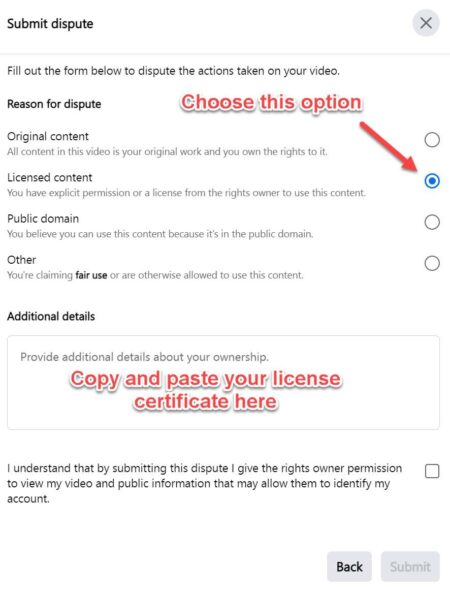In a controversial decision that has sparked outrage among conservationists and wildlife advocates, Malawi’s government has granted pardons to several notorious leaders of poaching gangs, who have been implicated in the illegal trade of endangered species and the destruction of national parks. The move, which raises questions about the country’s commitment to wildlife protection and environmental stewardship, comes amid ongoing challenges in tackling poaching, a crime that threatens biodiversity and the livelihoods of communities reliant on natural resources. Critics are voicing concerns that these pardons could embolden criminal networks and undermine efforts to restore Malawi’s rich natural heritage. As the debate unfolds, the implications of this decision will have far-reaching consequences for conservation initiatives in the region.
Pardons for Poaching Leaders Raise Concerns Over Wildlife Protection in Malawi
Recent pardons granted to notorious leaders of poaching gangs in Malawi have triggered a wave of concern regarding the country’s commitment to wildlife protection. Critics argue that these decisions undermine years of conservation efforts and discourage law enforcement from tackling the rampant issue of poaching, which has devastating effects on both biodiversity and local ecosystems. The pardons have been perceived as a signal that the government prioritizes political expediency over environmental preservation, potentially emboldening those who harm wildlife for economic gain.
Environmental advocates fear that these actions may lead to an increased incidence of poaching, jeopardizing the survival of endangered species such as elephants and rhinos. The backlash has sparked a broader dialogue about the efficacy of Malawi’s wildlife protection strategies, compelling officials to reassess the consequences of reintroducing convicted poachers into society. Key points of concern include:
- Impact on Biodiversity: The potential for increased poaching could accelerate the decline of already vulnerable species.
- Public Trust: Such unilateral decisions risk eroding public trust in the government’s commitment to conservation.
- International Reputation: The perception of Malawi as an unsafe habitat for wildlife could deter tourism and conservation initiatives.
Implications of Pardoning Wildlife Crime Figures on Conservation Efforts
The recent decision to pardon notorious poaching gang leaders in Malawi raises serious concerns regarding the future of conservation efforts in the region. These pardons send a troubling message, potentially undermining the legal framework designed to protect endangered species and their habitats. The implications of such actions could lead to a resurgence of poaching activities, posing significant threats to wildlife populations that are already struggling for survival. Stakeholders in conservation—including non-governmental organizations, local communities, and international partners—may question the effectiveness of their collaborative efforts, fearing that any progress made could be swiftly undone by government policies that appear lenient towards wildlife crime.
Furthermore, the pardoning of individuals with a record of such egregious acts can embolden other poachers, fostering a culture of impunity and diminishing the perceived seriousness of wildlife trafficking. This environment may hinder the ability of law enforcement agencies to deter criminal activities effectively, as the absence of stringent repercussions fails to provide the necessary deterrence. To comprehend the broader ramifications, it is essential to consider:
- Loss of Trust: Communities may lose faith in conservation initiatives.
- Funding Challenges: Donor support could dwindle due to perceived governance issues.
- Increased Poaching Rates: A likely upsurge in poaching incidents as criminals exploit perceived leniency.
Overall, the long-term viability of conservation efforts in Malawi and similar regions hangs in the balance as the implications of these pardons unfold. Without a robust legal framework and community buy-in, the struggle against wildlife crime is likely to face significant setbacks.
Urgent Recommendations for Strengthening Anti-Poaching Laws in Malawi
The recent pardoning of notorious poaching gang leaders in Malawi has ignited urgent calls for reform in the country’s anti-poaching laws. To effectively combat the escalating crisis of wildlife crime, it is critical that lawmakers implement stricter regulations and penalties aimed specifically at deterring poachers. The lack of stringent judicial consequences has fostered an environment where illegal activities are not only tolerated but also encouraged. To ensure the protection of wildlife and biodiversity, the following measures should be prioritized:
- Enhanced Penalties: Introduce more severe punitive measures for individuals convicted of wildlife crimes, including longer prison sentences and increased fines.
- Community Involvement: Foster local community participation in conservation efforts, providing incentives for protecting wildlife rather than exploiting it.
- Training for Law Enforcement: Invest in specialized training programs for law enforcement personnel to better equip them in tackling poaching and wildlife trafficking.
Moreover, the creation of a centralized database to track poaching incidents and offenders could streamline law enforcement efforts and provide a clearer picture of the scope of the problem. Establishing partnerships between the government and non-governmental organizations will also be vital in pooling resources and expertise. A comprehensive, collaborative approach could look like this:
| Action Item | Expected Outcome |
|---|---|
| Implement stricter penalties | Deterrent to poachers |
| Community engagement programs | Increased local conservation |
| Training for law enforcement | Improved enforcement efficiency |
Final Thoughts
In conclusion, the pardoning of notorious poaching gang leaders in Malawi has ignited a fervent debate over wildlife conservation and judicial accountability. As conservationists voice their concerns over the potential repercussions for endangered species and local ecosystems, the implications of these decisions extend far beyond the borders of Malawi. With wildlife crime continuing to pose a significant threat to biodiversity, the government’s stance raises questions about its commitment to preserving the country’s natural heritage. As the situation unfolds, it remains to be seen how these developments will impact ongoing conservation efforts and the fight against poaching in the region. The international community watches closely, hoping for swift actions that prioritize both justice and the protection of essential wildlife resources.







